The ITIL Intermediate Qualification: Release, Control and Validation (RCV) Certificate is a free-standing qualification, but is also part of the ITIL Intermediate Capability stream, and one of the modules that leads to the ITIL Expert Certificate in IT Service Management. The purpose of this training module and the associated exam and certificate is, respectively, to impart, test, and validate the knowledge on industry practices in service management as documented in the ITIL Service Lifecycle core publications. The ITIL Certificate in Release, Control and Validation is intended to enable the holders of the certificate to apply the practices during the service management lifecycle and specifically in the following key ITIL
process, role and function areas:
• Change management
• Service asset and configuration management
• Service validation and testing
• Release and deployment management
• Request fulfilment
• Change evaluation
• Knowledge management
ITIL Intermediate Release, Control and Validation
Original price was: ₹27,000.00.₹25,000.00Current price is: ₹25,000.00.
- Introduction to release, control and validation (RCV)
- Full understanding of RCV core concepts
- The purpose, objectives and scope of service transition lifecycle phase
- The RCV processes in relation to service transition
- Activities related to overall transition planning and ongoing support
- Full understanding of RCV core concepts
- Change management
- The knowledge, interpretation and analysis of change management
principles, techniques and relationships and their application for the effective management of release, control and validation- The end-to-end process flow for change management , including its policies, design strategy, concepts, activities, and interfaces with other processes
- A measurement model and the metrics that would be used to support change management within RCV practices
- The benefits and business value that can be gained from change management and the challenges and risks to be managed
- The knowledge, interpretation and analysis of change management
- Service asset and configuration management (SACM)
- The knowledge, interpretation and analysis of service asset and
configuration management principles, techniques and relationships and their application for the effective management of release, control and validation- The end-to-end process flow for service asset and configuration management, including its policies, design strategy, concepts, activities and interfaces with other processes
- A measurement model and the metrics that would be used to support service asset and configuration management within RCV practices
- The benefits and business value that can be gained from service asset and configuration management and the challenges and risks to be managed
- The knowledge, interpretation and analysis of service asset and
- Service validation and testing (SVT)
- The knowledge, interpretation and analysis of service validation and
testing principles, techniques and relationships and their application for the effective management of release, control and validation- The end-to-end process flow for the SVT process, including its policies, concepts, activities and interfaces with other processes
- Test modeling techniques and testing concepts (for example, stakeholder requirements, test conditions, environments, data) and how these test components are used to ensure service quality
- A measurement model and the metrics that would be used to support service validation and testing within RCV practices
- The benefits and business value that can be gained from SVT and the challenges and risks to be managed
- The knowledge, interpretation and analysis of service validation and
- Release and deployment management (RDM)
- The knowledge, interpretation and analysis of service validation and
testing principles, techniques and relationships and the application of them for the effective management of release, control and validation- The end-to-end process flow for release and deployment management , including its policies, concepts, phases, activities and interfaces with other processes
- Release and deployment models and related activities (for example, design, planning, build, pilots, test, transfer, deployment, retirement). and how these activities ensure service quality
- A measurement model and the metrics that would be used to support release and deployment management within RCV practices
- The benefits and business value that can be gained from release and deployment management
- The knowledge, interpretation and analysis of service validation and
- Request fulfilment
- The knowledge, interpretation and analysis of request fulfilment
principles, techniques and relationships and their application for the effective management of release, control and validation- The end-to-end process flow for request fulfilment, including its policies, concepts, activities, and interfaces with other processes (for example, RDM, SACM and change management)
- Request fulfilment models and related activities (for example, effectiveness of designs, changes,performance) and how these activities help to ensure quality service within RCV
- A measurement model and the metrics that would be used to support request fulfillment within RCV practices
- The benefits and business value that can be gained from request fulfillment and the challenges and risks to be managed
- The knowledge, interpretation and analysis of request fulfilment
- Change evaluation
- The knowledge, interpretation and analysis of change evaluation
principles, techniques and relationships and their application for the effective management of release, control and validation- The end-to-end process flow for change evaluation, including its policies, concepts, activities interfaces with other processes
- Perspectives and considerations for evaluating the effectiveness of a service change
- A measurement model and the metrics that would be used to support change evaluation within RCV practices
- The benefits and business value that can be gained from change evaluation and the challenges and risks to be managed
- The knowledge, interpretation and analysis of change evaluation
- Knowledge management (KM)
- The knowledge, interpretation and analysis of knowledge management
principles, techniques and relationships and their application for the effective management of release, control and validation- The end-to-end process flow for knowledge management, including its policies, concepts, activities and interfaces with other processes (for example CSI processes)
- Related concepts (for example, data-information-knowledge-wisdom (DIKW)) and how these activities help to ensure knowledge transfer and improved decision-making
- The benefits and business value that can be gained from knowledge management and the challenges and risks to be managed
- The knowledge, interpretation and analysis of knowledge management
- Release, control and validation roles and responsibilities
- The knowledge, interpretation and analysis of RCV roles and their
application for the effective management of release, control and validation- Generic roles that support service transition and the RCV processes
- The roles and responsibilities related to transition planning and support, change management, service asset and configuration management, service validation and testing, release and deployment management, request fulfilment, change evaluation, and knowledge management.
- Where and how these are used, as well as how they fit within the context of service transition.
- The knowledge, interpretation and analysis of RCV roles and their
- Technology and Implementation Considerations
- The knowledge, interpretation and analysis of technology and
implementation considerations and their application for the effective management of release, control and validation- The technology requirements for service management tools, where and how these would be used within RCV (for example, knowledge management and service asset and configuration management)
- The need and benefits of tools that support service transition as related to RCV
- Implementing RCV processes in the context of planning and managing change, service operation,project management, risk management, and staff considerations.
- The knowledge, interpretation and analysis of technology and
• Chief information officers (CIOs)
• Chief technology officers (CTOs)
• Managers
• Supervisory staff
• Team leaders
• Service designers
• IT architects
• IT planners
• IT consultants
• IT audit managers
• IT security managers
Prerequisite Entry Criteria
Candidates wishing to be trained and examined for this qualification must already hold the ITIL Foundation Certificate in IT Service Management which must be presented as documentary evidence to gain admission Candidates who hold the following ITIL qualifications are also eligible, and similar evidence will be required:
• Earlier ITIL (V2) Foundation plus Foundation Bridge
• ITIL Expert Certificate in IT Service Management (achieved via Service Manager or Practitioner bridging routes).
Eligibility for Examination
To be eligible for the ITIL Intermediate Qualification: RCV, candidates must have fulfilled the following requirements:
• At least 24 contact hours (hours of instruction, excluding breaks, with an Accredited Training Organization (ATO) or an accredited e-learning solution) for this syllabus, as part of a formal, approved training course/scheme
• A basic IT literacy and around 2 years IT experience are highly desirable
• Hold the ITIL Foundation Certificate in IT Service Management
• It is also recommended that candidates should complete at least 21 hours of personal study by reviewing the syllabus and the ITIL Service Transition publication in preparation for the examination
Format of the Examination
- Type: Eight (8) multiple choice, scenario-based, gradient-scored questions.
Each question will have 4 possible answer options, one which is worth 5
marks, one which is worth 3 marks, one which is worth 1 mark, and one which
is a distracter and achieves no marks. - Duration Maximum 90 minutes for all candidates in their respective language
Provisions for Additional Time relating to language, Candidates completing an exam in a language that is not their mother tongue have a maximum of 120 minutes to complete the exam and are allowed the use of a dictionary. - Supervised Yes
- Open Book No
- Pass Score 28/40 or 70%
Overview
ITIL Intermediate Release,Control and Validation Training & Certification
ITIL Intermediate Release,Control and Validation Training & Certification
The ITIL Intermediate Qualification: Release, Control and Validation (RCV) Certificate is a free-standing qualification, but is also part of the ITIL Intermediate Capability stream, and one of the modules that leads to the ITIL Expert Certificate in IT Service Management. The purpose of this training module and the associated exam and certificate is, respectively, to impart, test, and validate the knowledge on industry practices in service management as documented in the ITIL Service Lifecycle core publications. The ITIL Certificate in Release, Control and Validation is intended to enable the holders of the certificate to apply the practices during the service management lifecycle and specifically in the following key ITIL
process, role and function areas:
• Change management
• Service asset and configuration management
• Service validation and testing
• Release and deployment management
• Request fulfilment
• Change evaluation
• Knowledge management
Course Outline
ITIL Intermediate Release,Control and Validation Training & Certification
- Introduction to release, control and validation (RCV)
- Full understanding of RCV core concepts
- The purpose, objectives and scope of service transition lifecycle phase
- The RCV processes in relation to service transition
- Activities related to overall transition planning and ongoing support
- Full understanding of RCV core concepts
- Change management
- The knowledge, interpretation and analysis of change management
principles, techniques and relationships and their application for the effective management of release, control and validation- The end-to-end process flow for change management , including its policies, design strategy, concepts, activities, and interfaces with other processes
- A measurement model and the metrics that would be used to support change management within RCV practices
- The benefits and business value that can be gained from change management and the challenges and risks to be managed
- The knowledge, interpretation and analysis of change management
- Service asset and configuration management (SACM)
- The knowledge, interpretation and analysis of service asset and
configuration management principles, techniques and relationships and their application for the effective management of release, control and validation- The end-to-end process flow for service asset and configuration management, including its policies, design strategy, concepts, activities and interfaces with other processes
- A measurement model and the metrics that would be used to support service asset and configuration management within RCV practices
- The benefits and business value that can be gained from service asset and configuration management and the challenges and risks to be managed
- The knowledge, interpretation and analysis of service asset and
- Service validation and testing (SVT)
- The knowledge, interpretation and analysis of service validation and
testing principles, techniques and relationships and their application for the effective management of release, control and validation- The end-to-end process flow for the SVT process, including its policies, concepts, activities and interfaces with other processes
- Test modeling techniques and testing concepts (for example, stakeholder requirements, test conditions, environments, data) and how these test components are used to ensure service quality
- A measurement model and the metrics that would be used to support service validation and testing within RCV practices
- The benefits and business value that can be gained from SVT and the challenges and risks to be managed
- The knowledge, interpretation and analysis of service validation and
- Release and deployment management (RDM)
- The knowledge, interpretation and analysis of service validation and
testing principles, techniques and relationships and the application of them for the effective management of release, control and validation- The end-to-end process flow for release and deployment management , including its policies, concepts, phases, activities and interfaces with other processes
- Release and deployment models and related activities (for example, design, planning, build, pilots, test, transfer, deployment, retirement). and how these activities ensure service quality
- A measurement model and the metrics that would be used to support release and deployment management within RCV practices
- The benefits and business value that can be gained from release and deployment management
- The knowledge, interpretation and analysis of service validation and
- Request fulfilment
- The knowledge, interpretation and analysis of request fulfilment
principles, techniques and relationships and their application for the effective management of release, control and validation- The end-to-end process flow for request fulfilment, including its policies, concepts, activities, and interfaces with other processes (for example, RDM, SACM and change management)
- Request fulfilment models and related activities (for example, effectiveness of designs, changes,performance) and how these activities help to ensure quality service within RCV
- A measurement model and the metrics that would be used to support request fulfillment within RCV practices
- The benefits and business value that can be gained from request fulfillment and the challenges and risks to be managed
- The knowledge, interpretation and analysis of request fulfilment
- Change evaluation
- The knowledge, interpretation and analysis of change evaluation
principles, techniques and relationships and their application for the effective management of release, control and validation- The end-to-end process flow for change evaluation, including its policies, concepts, activities interfaces with other processes
- Perspectives and considerations for evaluating the effectiveness of a service change
- A measurement model and the metrics that would be used to support change evaluation within RCV practices
- The benefits and business value that can be gained from change evaluation and the challenges and risks to be managed
- The knowledge, interpretation and analysis of change evaluation
- Knowledge management (KM)
- The knowledge, interpretation and analysis of knowledge management
principles, techniques and relationships and their application for the effective management of release, control and validation- The end-to-end process flow for knowledge management, including its policies, concepts, activities and interfaces with other processes (for example CSI processes)
- Related concepts (for example, data-information-knowledge-wisdom (DIKW)) and how these activities help to ensure knowledge transfer and improved decision-making
- The benefits and business value that can be gained from knowledge management and the challenges and risks to be managed
- The knowledge, interpretation and analysis of knowledge management
- Release, control and validation roles and responsibilities
- The knowledge, interpretation and analysis of RCV roles and their
application for the effective management of release, control and validation- Generic roles that support service transition and the RCV processes
- The roles and responsibilities related to transition planning and support, change management, service asset and configuration management, service validation and testing, release and deployment management, request fulfilment, change evaluation, and knowledge management.
- Where and how these are used, as well as how they fit within the context of service transition.
- The knowledge, interpretation and analysis of RCV roles and their
- Technology and Implementation Considerations
- The knowledge, interpretation and analysis of technology and
implementation considerations and their application for the effective management of release, control and validation- The technology requirements for service management tools, where and how these would be used within RCV (for example, knowledge management and service asset and configuration management)
- The need and benefits of tools that support service transition as related to RCV
- Implementing RCV processes in the context of planning and managing change, service operation,project management, risk management, and staff considerations.
- The knowledge, interpretation and analysis of technology and
Who Should Attend
ITIL Intermediate Release,Control and Validation Training & Certification
• Chief information officers (CIOs)
• Chief technology officers (CTOs)
• Managers
• Supervisory staff
• Team leaders
• Service designers
• IT architects
• IT planners
• IT consultants
• IT audit managers
• IT security managers
Exam Information
ITIL Intermediate Release,Control and Validation Training & Certification
Prerequisite Entry Criteria
Candidates wishing to be trained and examined for this qualification must already hold the ITIL Foundation Certificate in IT Service Management which must be presented as documentary evidence to gain admission Candidates who hold the following ITIL qualifications are also eligible, and similar evidence will be required:
• Earlier ITIL (V2) Foundation plus Foundation Bridge
• ITIL Expert Certificate in IT Service Management (achieved via Service Manager or Practitioner bridging routes).
Eligibility for Examination
ITIL Intermediate Release,Control and Validation Training & Certification
To be eligible for the ITIL Intermediate Qualification: RCV, candidates must have fulfilled the following requirements:
• At least 24 contact hours (hours of instruction, excluding breaks, with an Accredited Training Organization (ATO) or an accredited e-learning solution) for this syllabus, as part of a formal, approved training course/scheme
• A basic IT literacy and around 2 years IT experience are highly desirable
• Hold the ITIL Foundation Certificate in IT Service Management
• It is also recommended that candidates should complete at least 21 hours of personal study by reviewing the syllabus and the ITIL Service Transition publication in preparation for the examination
Format of the Examination
ITIL Intermediate Release,Control and Validation Training & Certification
- Type: Eight (8) multiple choice, scenario-based, gradient-scored questions.
Each question will have 4 possible answer options, one which is worth 5
marks, one which is worth 3 marks, one which is worth 1 mark, and one which
is a distracter and achieves no marks. - Duration Maximum 90 minutes for all candidates in their respective language
Provisions for Additional Time relating to language, Candidates completing an exam in a language that is not their mother tongue have a maximum of 120 minutes to complete the exam and are allowed the use of a dictionary. - Supervised Yes
- Open Book No
- Pass Score 28/40 or 70%
ITIL Expert Managing Across the Lifecycle http://www.info-savvy.com/product/itil-expert-managing-across-the-lifecycle/
ITIL Foundation http://www.info-savvy.com/product/itil-foundation/
ITIL Intermediate Continual Service Improvement http://www.info-savvy.com/product/itil-intermediate-continual-service-improvement/
ITIL Intermediate Operational Support And Analysis http://www.info-savvy.com/product/itil-intermediate-operational-support-and-analysis/
ITIL Intermediate Planning Protection And Optimization http://www.info-savvy.com/product/itil-intermediate-planning-protection-and-optimization/
You must be logged in to post a review.

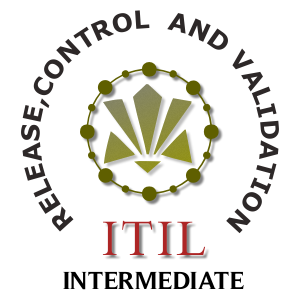


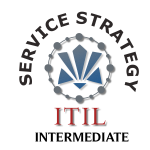
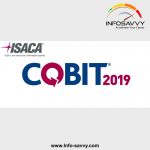
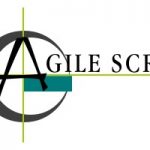
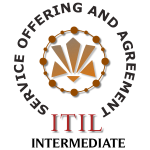

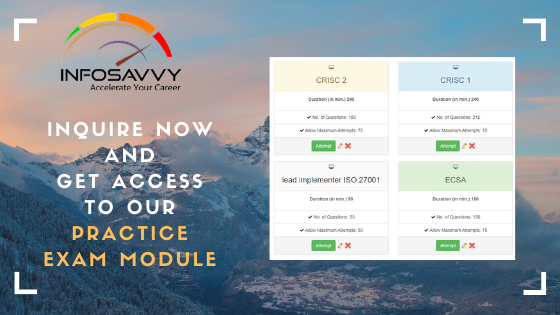
Reviews
There are no reviews yet.